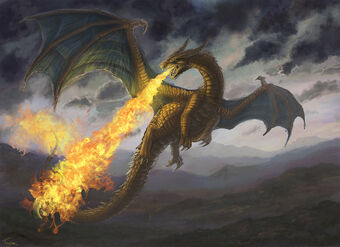Mythology Syllabus
2020/21
Teacher: Rebecca Frey, rebfrey@gmail.com, 415 140 8423
This year we will focus on Classical Mythology but add comparisons with other traditions to explore the wonder and delight of similarities among cultures and examine and ponder the differences. This is a soft entrance to critical thinking as we ask why there are variations among cultures with respect to their stories.
Every class will begin with a review of previous material, followed by discussion and individual observation.
At the end of each term an essay examination will be given and there will be quizzes and projects throughout the year. The students will have ample notice before quizzes and tests, and I will post a study guide before each.
Materials:
The students need a notebook dedicated to Mythology for class notes. I would like it if the students drew pictures of what we are discussing in class. At the end of the year we can look back at all their drawings.
Texts:
It would be nice if the students had the following books:
D’Aulaires Book of Greek Myths
D’Aulaires Book of Norse Myths
“The Tale of Troy” by Roger Green
In place of the books, which are a nice collection of stories, I will use PowerPoint presentations that include images, as many as I can find, of what we are talking about in class.
WARNING - I advise that the students be supervised when exploring the web for information about Mythology. There are many offensive images out there that the students just do not need to see.
Evaluation: Students will be evaluated based on quizzes (25%), examinations (25%), projects (20%), notebooks (10%), and participation (20%).
Expectations: The students will be expected to:
-Maintain an organized and complete notebook of in-class notes and drawings.
-Respect the other students in the classroom.
-Participate in class discussion.
-Complete reading assignments and be ready to discuss them in class.
-Take quizzes about current material.
-Turn their projects and homework in on time.
-Take the final essay examination at the end of each term.
Course Objectives: Throughout the year the students will learn about classical myths and develop critical thinking skills by comparing myths from different cultures and discovering how mythology lives today through literature and film. Another goal of this course is to understand allusions and references to myths, the archetypes, and to identify the patterns of the hero’s journey.
Part One: The Gods
Where do we get our stories? Hesiod, Homer, Ovid, Herodotus, etc.
The three generations of Greek gods.
The Olympians and their stories. This section is going to be quite long.
We will compare the gods of Homer and Hesiod to the Percy Jackson book. I will summarize the ancient sources and we can discuss the book throughout this section and the next (Heroes).
Other creation myths, other gods.
Part Two: The Heroes
Heroes, their stories and journeys against the backdrop of Joseph Campbell. What is the Hero’s journey? What are the common themes? We will include Bellerophon, Perseus, Theseus, Heracles, Jason, Gilgamesh, Luke Skywalker, perhaps Percy Jackson. Also during part two we will talk about and compare the underworlds of various cultures. We will use Homer, Virgil, and Plato, and the Egyptian Book of the Dead as primary sources.
Part Three: Epics and Tragedies, and myths in the modern world
The marriage of Cadmus and Harmony and the story of the Trojan War and the returns of the warriors. How did a single apple result in such drama?
We will be reading “The Tale of Troy” by Roger Green in class and learn the stories of the Iliad and the Odyssey and the Aeneid. I will discuss the main points of each epic in class. We will use Aristotle’s definition of tragedy as a way to compare and evaluate those that we read.
We will read excerpts from the following tragedies:
- The Oresteia (Aeschylus)
- Oedipus the King (Sophocles)
- The Bacchae (Euripides)
- Media (Euripides)
Reading the actual tragedies would be quite difficult, so I will just tell the students the stories and we’ll read appropriate passages in class.
I would like to end the school year with discussions about Myths in the modern world, in movies, novels, plays and poems, art, and even in advertising. Given what we have learned about mythology, where do we find the themes in our modern world? Where and how are the archetypes depicted? What are some modern allusions to the myths we have studied?
Possible movies to watch and compare with what we have learned:
“Oh Brother Where Art Thou?” This is a PG13 movie, my hope is that parents will watch it with their children to make comparisons between the movie and the Odyssey. If you find it inappropriate there are others:
“Hercules” by Disney, a movie that departs so drastically from our primary sources; we could think about why that is the case.
Or
“Jason and the Argonauts”
Or
The Lion King (for the hero’s journey)
or
“The Lightening Thief”
Or… suggestions welcome.
This syllabus is subject to change as suggestions and ideas come in from parents and students.

- Profesor: Rebecca Frey